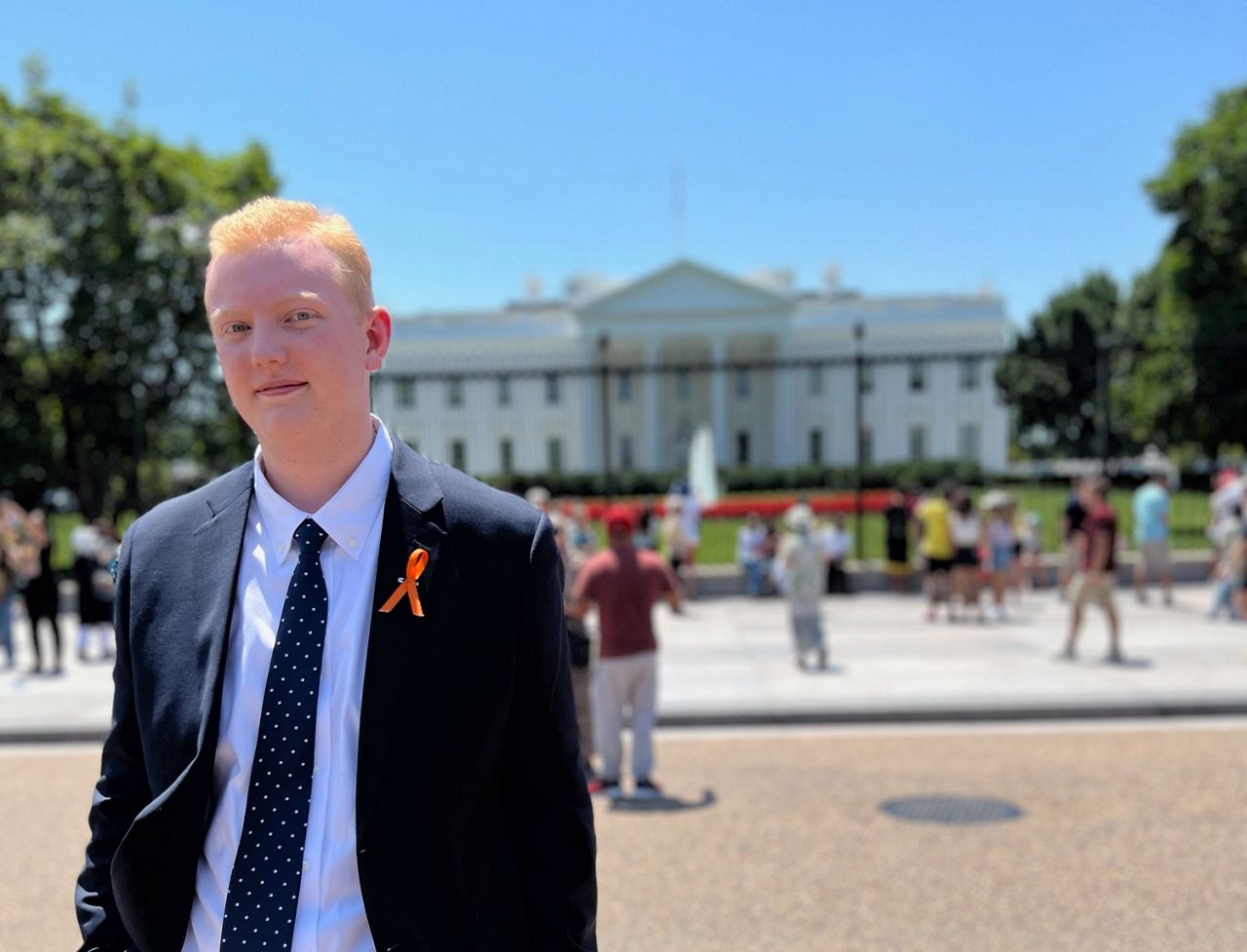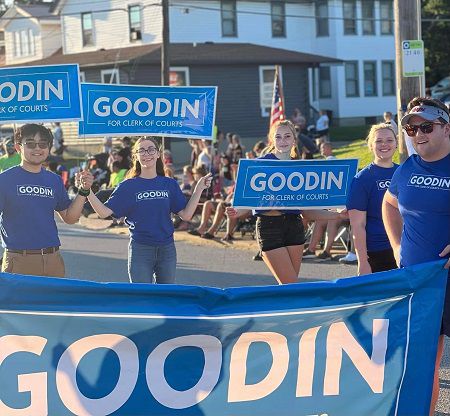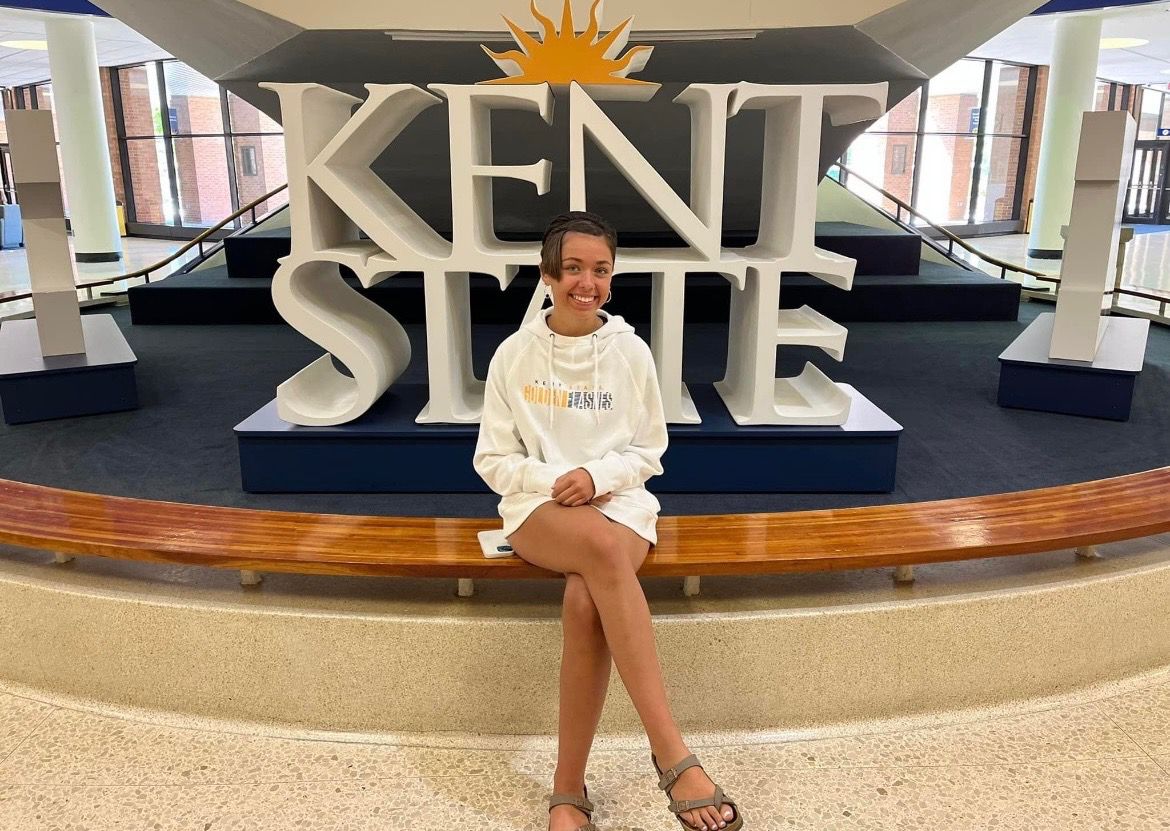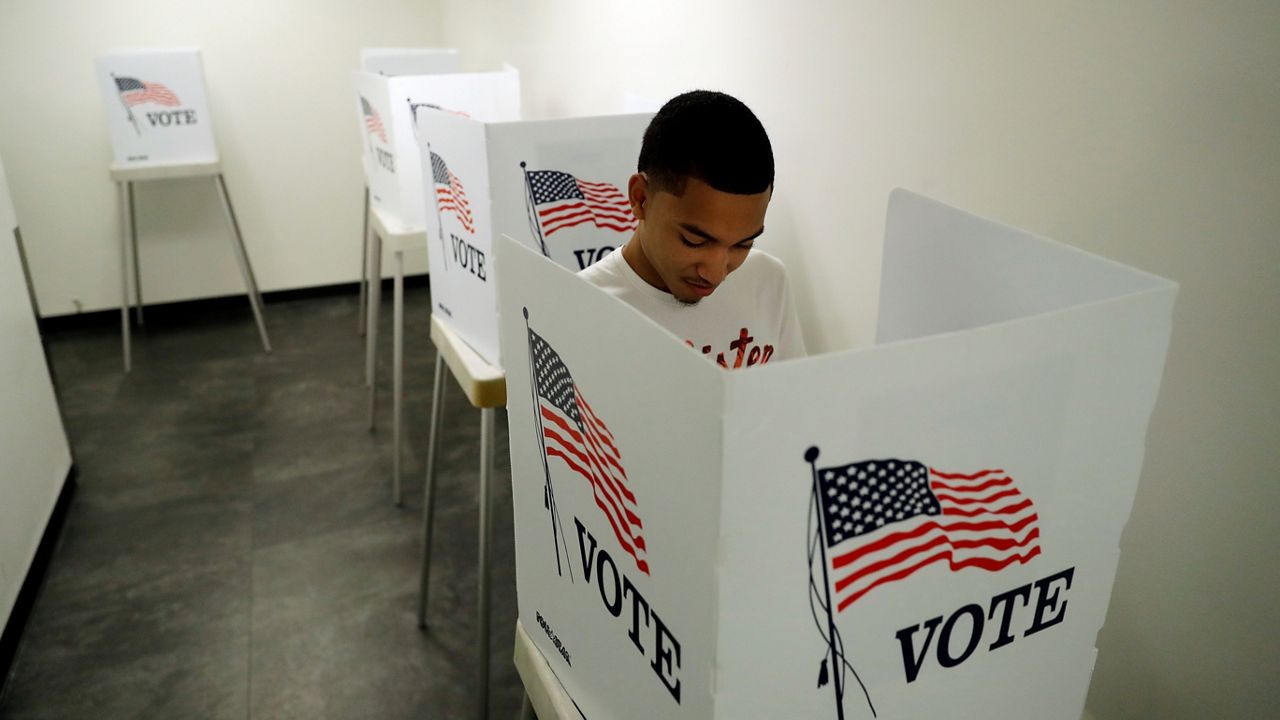CINCINNATI — From their role on the campaign trail to their decisions in the ballot box, young people from across Ohio and the rest of the United States expect to play a huge role in the outcome of the 2022 midterm election.
Roughly 40% of 18- to-29-year-olds plan to “definitely” vote on Tuesday, Nov. 8, according to a national poll by the Institute of Politics at Harvard University’s Kennedy School of Government.
Released Oct. 27, the poll showed the youth vote for this midterm election is on track to match or potentially exceed the record-breaking 2018 turnout for a midterm election.
Some political pundits have referred to a could-be voter surge as the “Generation Z wave.”
“This election is incredibly important, especially for young people,” said Ethan Nichols, a sophomore at Xavier University. “When young people vote, we all win. We are a huge voting bloc. It’s just a matter of being able to mobilize us, mobilizing young people, especially on college campuses.”

Nichols, 20, is secretary of the College Democrats at Xavier. As the name suggests, the group comprises mostly liberal-minded students focused on helping the county and state parties get word out to prospective swing voters.
The organization focused early on voter registration throughout the summer and fall as students returned to campus. But since the registration window closed in early October, they’ve shifted to the “get out the vote” phase and are going door-to-door talking to voters about why this election matters.
Xavier’s student body has more than 5,100 undergraduate students. More than 60% of the Xavier students hail from outside Ohio, according to data supplied by the university.
Nichols said the club approaches each student a little differently depending on where they come from.
“A Democrat’s vote in California is way different from a Democrat’s vote here in Ohio,” said Nichols, who grew up in Cincinnati. “If we find a student who is coming from Los Angeles, Chicago or New York City, we definitely approach them and try to explain that there’s a lot at stake here in Ohio. We have razor-thin margins in the Senate race and in the 1st Congressional District and really important (state) Supreme Court seats up for election.
“But you know, if we encounter a student from Georgia or Wisconsin or Pennsylvania, who plans to vote absentee in their home state, we more than support that because they have some pretty razor-tight margins in those states as well,” he added.
Nichols’ first foray into politics was in 2018 when he started a nonprofit to organize around gun violence prevention following the shooting at Marjory Stoneman Douglas High School in Parkland, Florida.
Over the past few years, Nichols feels there’s been a “drastic shift” in youth sentiment about voting. He cited the contentiousness of the 2020 election and other national issues, such as the future of immigration, abortion and the economy, have inspired young people to “keep that energy going.”
Those concerns have inspired young people to become active in politics earlier and more regularly than their parents and grandparents, according to IOP Polling Director John Della Volpe said
The IOP poll found that nearly 40% of Republicans cited inflation as the most important issue driving their midterm vote; Democrats are moved by abortion (20%), protecting democracy (20%), inflation (19%), and climate change (16%).
More than 7-in-10 young Americans (72%) polled believe that the rights of others are under attack, and 59% believe that their own rights are under attack.
“If they all voted, young people could fundamentally change government from the top down,” said Hamilton County Clerk of Courts Pavan Parikh (D). “This election, like all elections, is a perfect opportunity for them to have their voice be heard, and to hold public officials accountable to prioritize the issues that are important to them.”

Grant Bagshaw, 23, vice president of Rising Republicans of Greater Cincinnati, said his club has seen a “noticeable increase in club membership, club participation, and social media engagement” since the election of President Joe Biden in 2020.
The 23-year-old emphasized topics such as the current state of the economy and prices “at the gas pump and the grocery store” as major factors. They’ve also talked a lot about immigration, he said.
Madison Belletti, president of College Republicans at the University of Cincinnati, grew up on the west side of the Queen City. While familiar with the local political scene for years, she became “energized” by the idea of being able to make a difference within the local party, even as a freshman.
“I was in high school during the 2016 election, and obviously it got very heated,” said Belletti, now 20. “It piqued my interest in politics, and then coming into college in 2020 and another presidential election with a similar environment really just made me so interested in politics.”
UC has its own “get out of the vote” campaign for every election, even for midterm elections, Belletti said. Over the past few weeks, they’ve been handing out sample ballots on campus and sharing information about specific candidates and issues.
The group has tried to focus their “boots on the ground” energy for the issues and candidates that excite them most. Belletti specifically mentioned Orlando Sonza, Jr., a state senate candidate in Ohio’s 9th District.
“We have some really young candidates running for state rep and state senate this year, so we’re really concentrating our efforts around them because they’re people my kids (Campus Republicans) can really relate to,” she said. “They’re so much more motivated to help our younger candidates than maybe someone who doesn’t need help that much if they’re in a safe district or if they just can’t relate to them on a personal level.”
On Election Day, UC College Republicans plan to be at different precincts around Hamilton County, handing out sample ballots featuring the party’s supported candidates and issues. In the weeks leading up to the election, the group has spent every weekend knocking on doors, making phone calls and attending rallies for GOP-backed candidates.
A group of College Republicans from UC and Xavier joined forces for events to help support local candidates.
Another of those candidates is Republican Steve Goodin, a challenger who’s taking on Parikh in a special election on Tuesday.
Goodin noted that the college Republican groups have been active this year.
“We’ve seen a tremendous amount of young people getting involved in local campaigns, including ours,” Goodin said. “Lots of very strong feelings about the direction of the country.”
An opportunity to attract young voters
Whether it’s the Hamilton County GOP or the Ohio Democratic Party, or even one of the campus groups, all of them are trying to attract the attention of young voters, especially those who remain undecided.

Young voters prefer Democratic control of Congress 57% to 31%, according to the Harvard poll, but 12% remained undecided.
One of those people is Brooke Emch, 18, a freshman at Kent State University.
Over the past few weeks, the nursing major has been reading up on the candidates and statewide issues. Her parents live not too far from Kent State, so she received some input on location issues from them. But she’s planning to vote at her on-campus polling place alongside fellow students.
“I have an idea of who I’m voting for, but I’m still thinking about it,” Emch said.
Emch has noticed campaign representatives and other student groups on campus recently, but not that often. She expects that activity to pick up over the next few days.
Since turning 18 last December, Emch has become a “lot more involved” in politics, she said. As a teen, she’s lived through a pandemic, an economic downtown and some decisions by the Supreme Court of the United States that will affect her life and those others for years to come.
Emch called voting a “civic duty” but she’s also excited about the prospect of getting more involved now that she’s legally able to take part.
“I mean, I’ve always known about the elections, but it’s different when you actually get to have a say in the outcome,” she said. “I’m really excited about it overall.”




